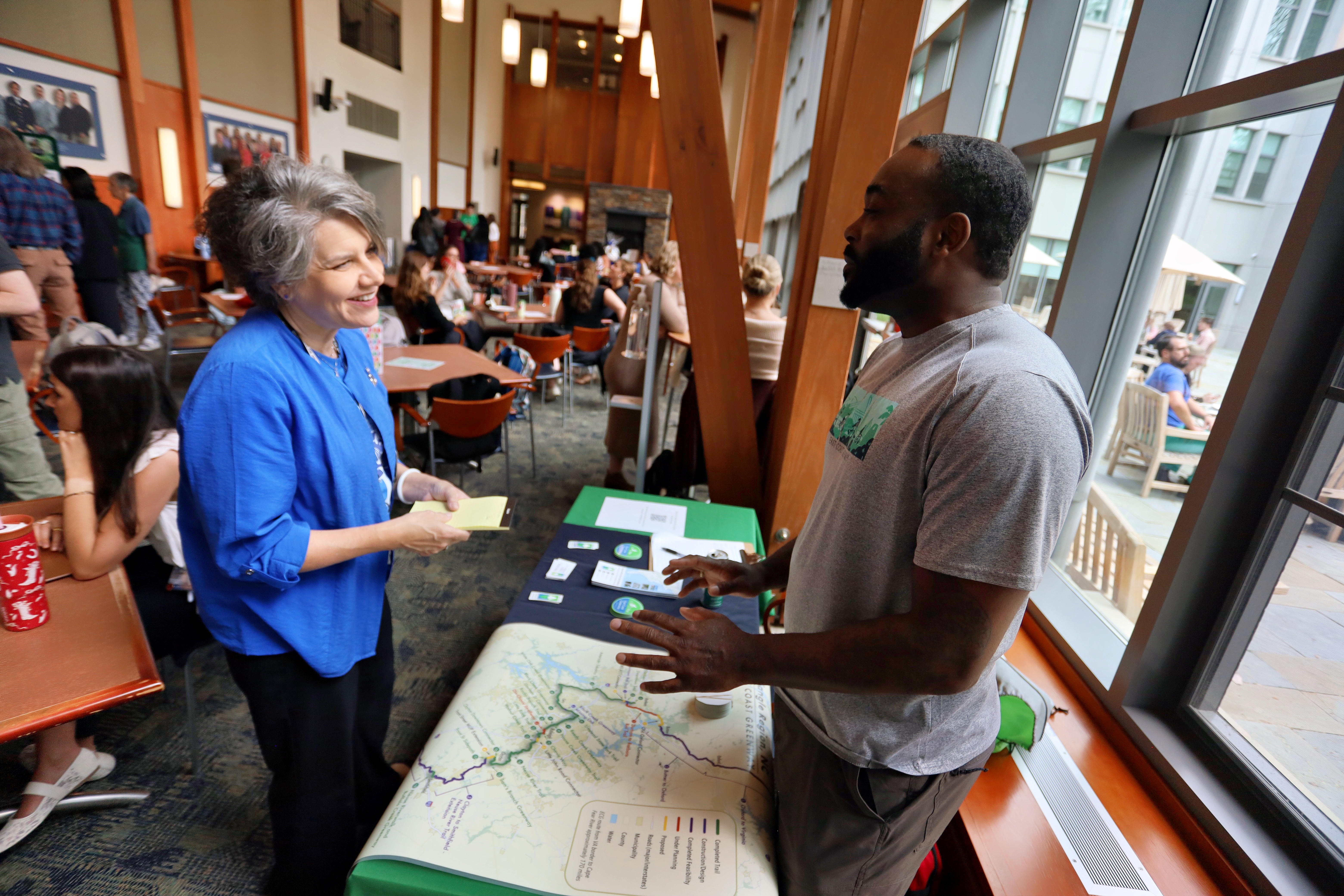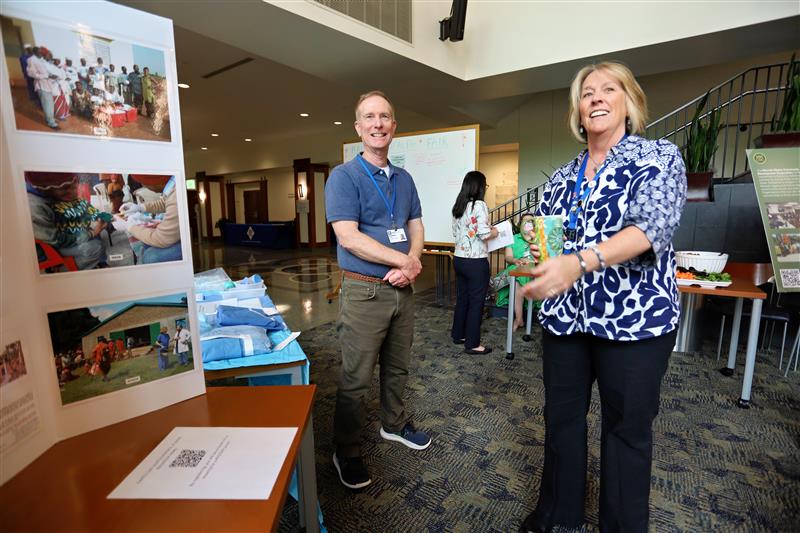Mobilizing Nurses for Planetary Health
Dr. Valerie Sabol, inaugural Director of Planetary Health at the School of Nursing, shares how nurses contribute to planetary health and how the School is advancing Duke's climate work.

In a question-and-answer session, Valerie Sabol, RN, PhD, MBA, Clinical Professor and inaugural Director of Planetary Health at Duke University School of Nursing, explained nursing’s link to planetary health, imagined what a climate-friendly nursing future could look like, and shared what led her to embrace climate work.
Can you describe the background and vision for this role?
I see my new role here at the School of Nursing as being a translator and connector. I engage with environmental science and the many individuals engaged in this space and try to connect them with nursing so that we can translate that information into practical strategies and solutions for our patients, families, and communities.
How does nursing relate to planetary health?
Nursing is always thinking about the whole person—mind, body, and environmental. But when we think about how we live, work, and play, we must ask: how can we stay healthy on a planet where the air, the water, and the soil are polluted? Our goal is to equip nurses to both help individuals adapt to the changes we are seeing in our climate as well as mitigate future health risks through prevention and advocacy.
I would also add that nurses are on the front lines—we're often the first ones to see emerging health trends, whether it’s an increase in heat-related illnesses or the effects of poor air quality. This positions us not only to respond through direct care, but also to engage in advocacy and lead in shaping healthier environments for the individuals and communities we serve.
Can you give an example of a nurse-led initiative or work related to planetary health?
In my clinical practice at the Durham VA, we screen veterans before they go into surgery to identify any potential health risks to ensure the best possible outcomes—pre-operatively, intraoperatively, and post-operatively. One way nurses are advancing care in this space is by working with our interprofessional colleagues to integrate extreme heat risk into our pre-surgical screening questions so that we can identify those veterans who may be at increased risk for dehydration or other heat-related complications, helping us take preventative steps to avoid post-operative issues. Additionally, by reviewing the medications that they're taking, both prescribed and over the counter, we can adjust them, because in the summer when it gets really hot and humid, our aging veterans are not going to be able to tolerate their medications like they usually do in cooler conditions. Anticipating these climate-related health impacts is critical to ensuring safe and effective surgical recovery.
You and interprofessional colleagues recently created a Coursera course for healthcare professionals. What are other ways you’re collaborating across Duke to advance this work?
The Duke Climate Commitment has really led the way in much of what we do here at Duke and here at the School of Nursing. One of the areas that I'm particularly excited about is my role serving as Co-Chair of the Education Subcommittee. Our charge is to ensure that all Duke learners—and that goes beyond students, and includes faculty, staff, and our alumni—are climate fluent and equipped to engage in meaningful, solutions-oriented conversations about climate and health.
What has your journey to this role looked like?
I got involved in this space about three years ago. I know there are a lot of people who've been engaged in this space for much longer than that, but this work has become deeply personal to me. One of my family members was talking about their future and it struck me that they had a very dismal outlook on their future, and I couldn't understand why that was, and it was about climate change.
That conversation was a pivotal turning point for me, and I realized that as a nurse with one of the most trusted professional voices out there, I have the obligation and opportunity to shift the way we approach health, because the way we've always done things is no longer working for us. So as a nurse leader, I began to focus on how I could influence how our future nursing workforce learns, practices, and engages with the complex challenges posed by climate change. What began as a deeply personal experience with a family member, one who felt hopeless about the future, has turned into a professional mission and I've become a strong advocate in this space. That same family member not only has been inspiring but has also grown more hopeful, now planning a career in this space as well.
This work is grounded in the understanding that human health, both mental and physical, is inseparable from the health of our planet. And just imagine: if the largest healthcare workforce in the world, nurses, mobilized its collective voice, knowledge, and compassion toward climate action, the impact on human health would be extraordinary. Nurses aren’t just caregivers. We are advocates, educators, scientists, and change agents, and we are essential to building a healthier, more sustainable future.
